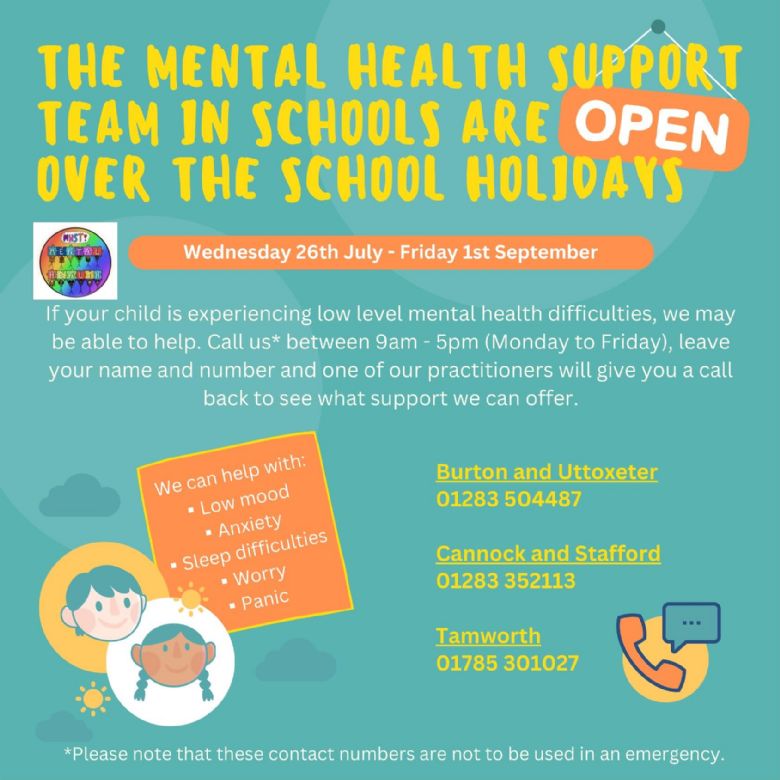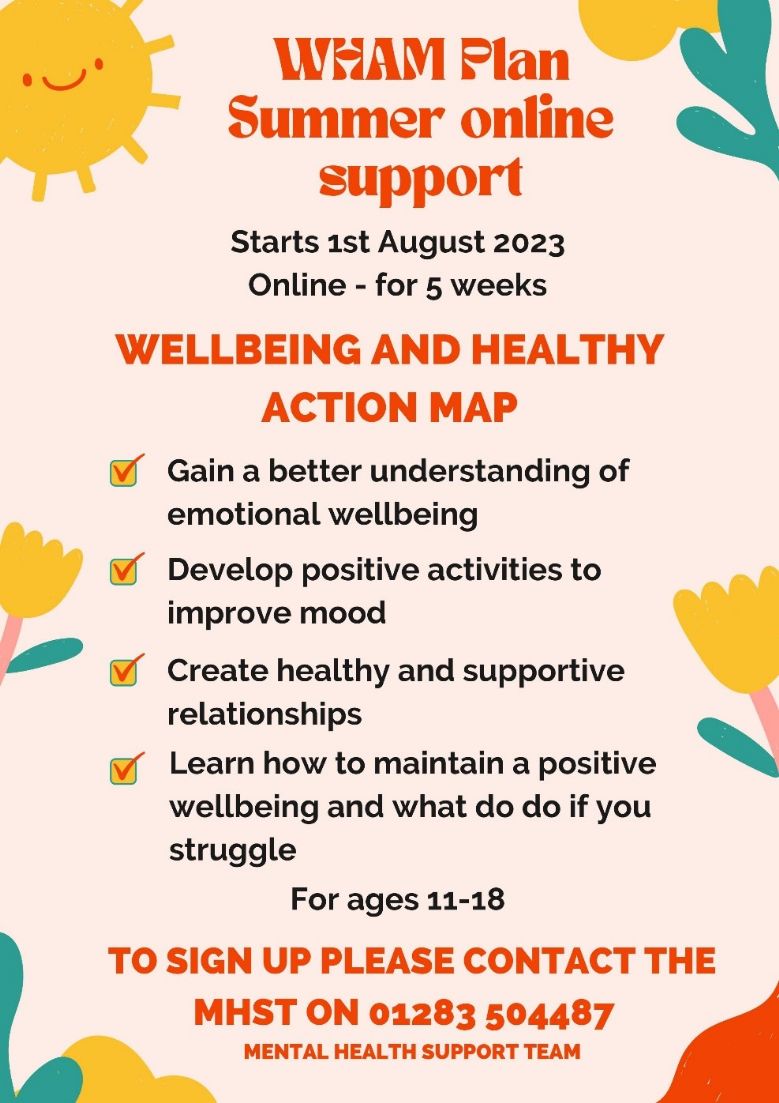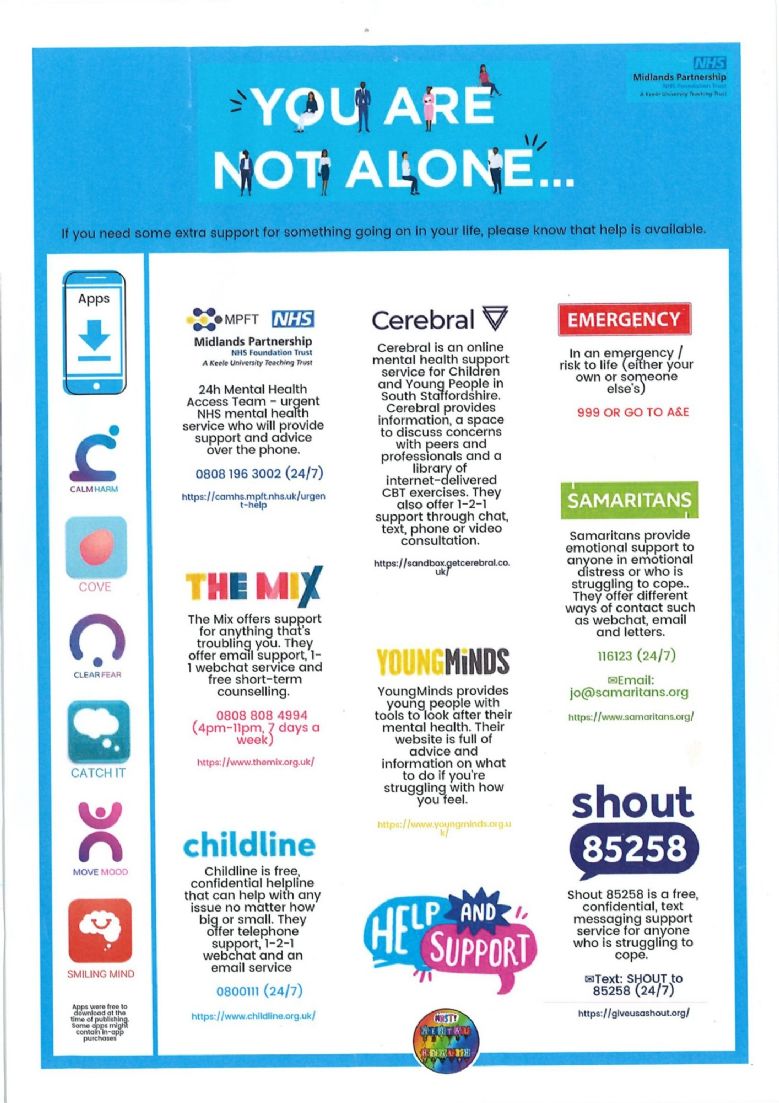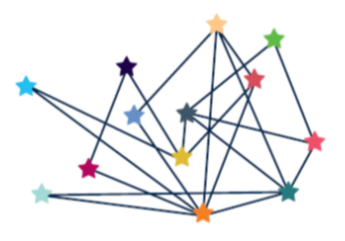Mental Health
The rates of mental health problems increase as children get older. Almost two in 10 students aged 11 to 16 has an identifiable mental health condition – which rises to around one in five among 17 to 22 year olds.
We aim to develop young people’s social and emotional skills, and help those students who are having difficulties get the support they need.
What's mental health?
We all have mental health. Your mental health affects how you feel, think and act. It refers to your emotional, psychological and social wellbeing. Your mental health can change on a daily basis and over time, and can be affected by a range of factors.
It’s important to look after your mental health, as you would look after your physical health. Your state of wellbeing affects how you cope with stress, relate to others and make choices. It also plays a part in relationships with your family, community, colleagues and friends.
Good mental health among children and young people
When children and young people have good levels of wellbeing it helps them to:
- learn and explore the world
- feel, express and manage positive and negative emotions
- form and maintain good relationships with others
- cope with, and manage, change, setbacks and uncertainty
- develop and thrive.
When children and young people look after their mental health and develop their coping skills it can help them to boost their resilience, self-esteem and confidence. It can also help them learn to manage their emotions, feel calm, and engage positively with their education - which can, in turn, improve their academic attainment.
What affects children and young people’s mental health?
A child or young person’s mental health will be influenced by many things over time and, because they all have different personalities, they will react and cope with challenging situations in different ways.
Risk Factors |
Protective Factors |
|
Children and young people present with and will be exposed to a range of factors in their homes and communities that can affect their mental health – this is what we call “risk factors”. Some children and young people experience multiple risks, which means their mental health is more likely to be affected.
However, not all children and young people who are exposed to risks will develop mental health difficulties. |
There are lots of things that schools and settings can do to help “protect” and support pupils so that they can cope better with any challenges that they may face. These include important social and emotional skills to help them cope, such as being more resilient, knowing how to manage their emotions, and feel confident. Schools also need to make sure that they reduce school-based risk factors, such as bullying, and put in place support that helps pupils to feel that they belong and have positive relationships with their teachers and school staff, as well as other pupils. |
What we offer at TAHS
Thomas Alleyne’s works with a range of services as well as providing staff with specific training to help manage children’s mental health needs.
- Pastoral support. Whether your child has difficulty managing a changing situation or needs extra support. The house teams work to create a positive environment for pupils to manage anxiety and low mood. If you wish to contact your house team simply email
Elkes: brooks@tahs.net & attwood@tahs.net
Orme: brassington@tahs.net & moore@tahs.net
Torrance: lambert@tahs.net & matthews@tahs.net
Whitmore: jones@tahs.net & forsyth@tahs.net
Services we work with
- MHST (Mental Health in Schools Team). The NHS operate within our school providing CBT and counselling within school to those referred. The MHST also run workshops and provide resources and drop ins during evening events. MHST can be referred by staff or parents. The service can also take place online if pupils are struggling to attend or during holiday times.

- WHAM Plan. Each year we run the WHAM plan after school to encourage our students to become Mental Health Ambassadors in school. This also runs during the holidays. See below for how to register your child.

Where can I get more information and help?
- For parental advice and guidance https://www.nhs.uk/every-mind-matters/supporting-others/childrens-mental-health/
- For children struggling with anxiety: Young Minds provides resources and information https://www.youngminds.org.uk/young-person/mental-health-conditions/anxiety/
- SARAC (Sexual Abuse Rape Advice Centre) offers confidential support for people in Burton, Uttoxeter and South Derbyshire who are at risk of or have experienced sexual violence and/or rape at anytime in their lives. https://sarac.org.uk/
If your child has additional needs Mencap and the National Autism Society provide resources and guidance https://www.mencap.org.uk/advice-and-support/children-and-young-people/support-parents-and-carers-children-and-young-people and https://www.autism.org.uk/



